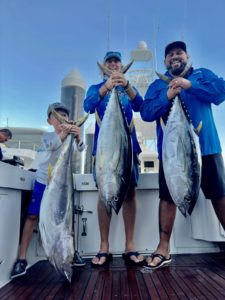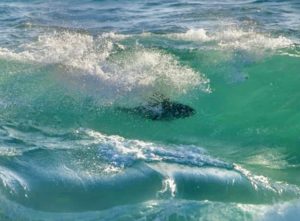Table of Contents
The Ultimate Guide to Saltwater Fishing: Answering Your Top Questions
Saltwater fishing is an exhilarating experience that allows you to battle some of the ocean’s most formidable creatures. Whether you’re just starting out or you’re a seasoned pro, there are always new things to learn. Below, we tackle some of the top questions people have about saltwater fishing, offering you insight into gear, techniques, and more.
Gear and Equipment
What Type of Fishing Rod and Reel Should I Use for Saltwater Fishing?
The rod and reel you choose depend on the type of fishing you plan to do. For surf fishing, you might opt for a long, heavy-action rod with a spinning reel that has a high line capacity. Inshore anglers often prefer medium-action spinning reels and rods that are around 7-8 feet long. Offshore fishing typically calls for a trolling or conventional reel paired with a heavy-action rod. Always ensure that the gear you choose is designed for saltwater to prevent corrosion.
What Pound Test Line is Best?
This also varies depending on what you are targeting. Generally, lighter lines (10-20 lb) are good for smaller species like flounder or snapper, while heavier lines (30-50 lb or more) are needed for larger fish like tuna or marlin. Braided line is increasingly popular for its strength-to-diameter ratio.
Licenses and Regulations
Do I Need a Saltwater Fishing License?
Most states and countries require a fishing license for saltwater angling. Make sure you check local regulations and obtain the necessary permits. Some locations also offer short-term licenses for tourists.
What are the Size and Bag Limits?
Regulations vary by location and species. Always familiarize yourself with local guidelines to ensure that you are fishing sustainably. Exceeding bag limits or keeping undersized fish can result in hefty fines.
How Do I Cast Farther?
Improving your casting distance involves a mix of proper technique and gear. Longer rods generally allow for longer casts, but technique is crucial. Use your whole body to cast, engaging your shoulders, and hips, not just your arms. The type of line and weight of the lure also affect distance.
How to Properly Set the Hook?
Quick and firm wrist action is usually enough to set the hook. The idea is to ensure that the hook penetrates securely, so the fish cannot easily shake it off. Again, the hook setting technique may vary with the species targeted.
Locations and Conditions
What are the Best Tides for Saltwater Fishing?
Fishing is generally best during the transition between tides. Many anglers prefer the last two hours of an incoming tide and the first two hours of an outgoing tide. However, this can vary based on local conditions and species behavior.
How Does Weather Affect Saltwater Fishing?
Fish are cold-blooded, so their activity is influenced by water temperature. Overcast days are often good for fishing since fish are more likely to be feeding. Wind direction can also influence fish behavior, with an onshore wind often bringing baitfish closer to shore.
SATFISH is a great app that provides detailed information on water temperatures, wind conditions, and tides, making it a one-stop shop for all your environmental data needs. No more jumping between different weather apps or tide charts; SATFISH brings it all together in an easy-to-use interface.
Special Offer: $20 Off a New Subscription
Good news for our readers: by using the code TAGCABO, you can get a $20 USD discount off a new SATFISH subscription! That’s not just a great deal; it’s an investment in making your saltwater fishing trips more productive and enjoyable.
Safety and Conservation
What are the Safety Precautions I Should Take?
Always wear a life jacket if you’re fishing from a boat, and make sure you have sufficient drinking water, sunscreen, and first-aid supplies. Keep an eye on the weather forecasts and always let someone know where you’re going and when you expect to return.
How Can I Contribute to Conservation?
Catch and release is one effective way to contribute. If you do keep fish, stick to the regulations. Many areas also have “adopt a spot” programs or clean-up events, which are excellent ways to give back to the ecosystem.
In Summary
Saltwater fishing is an adventure that anyone can enjoy with the right preparation and knowledge. We hope that this guide has answered some of your most pressing questions. Remember, the best angler is an informed and responsible one. Good luck and tight lines!



